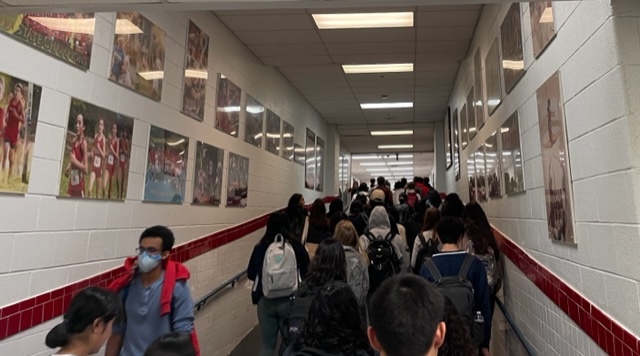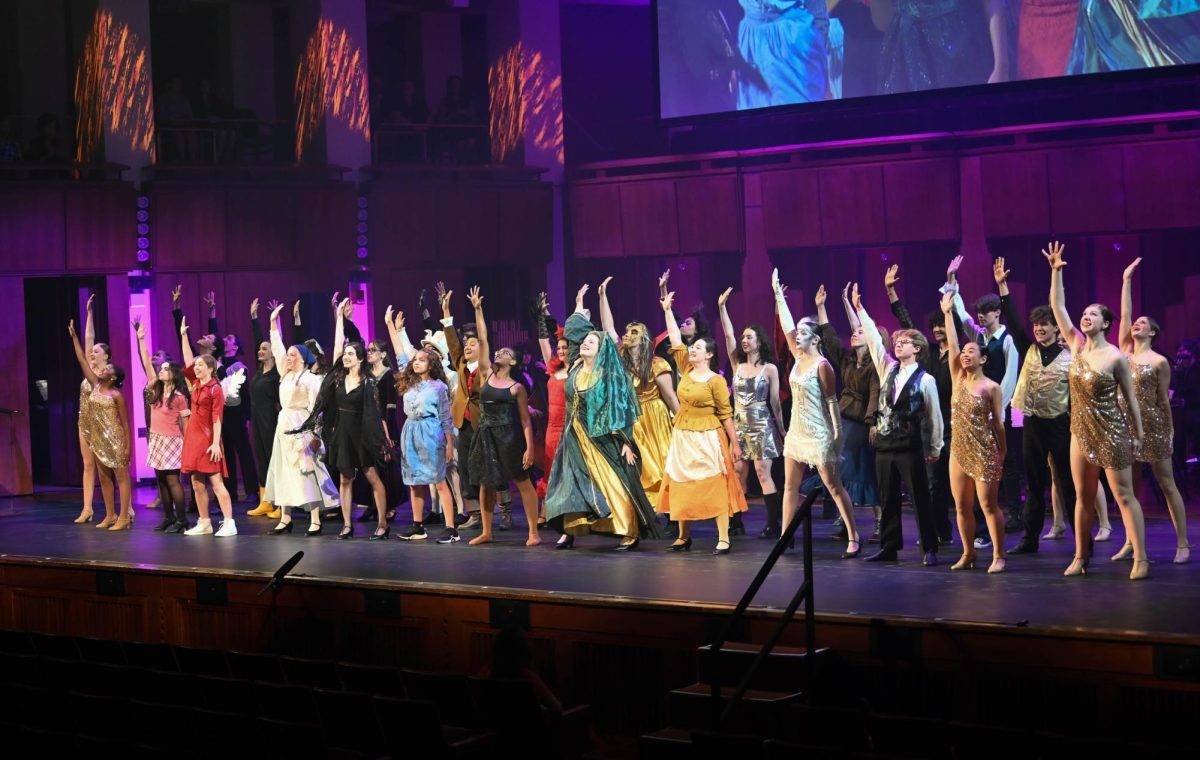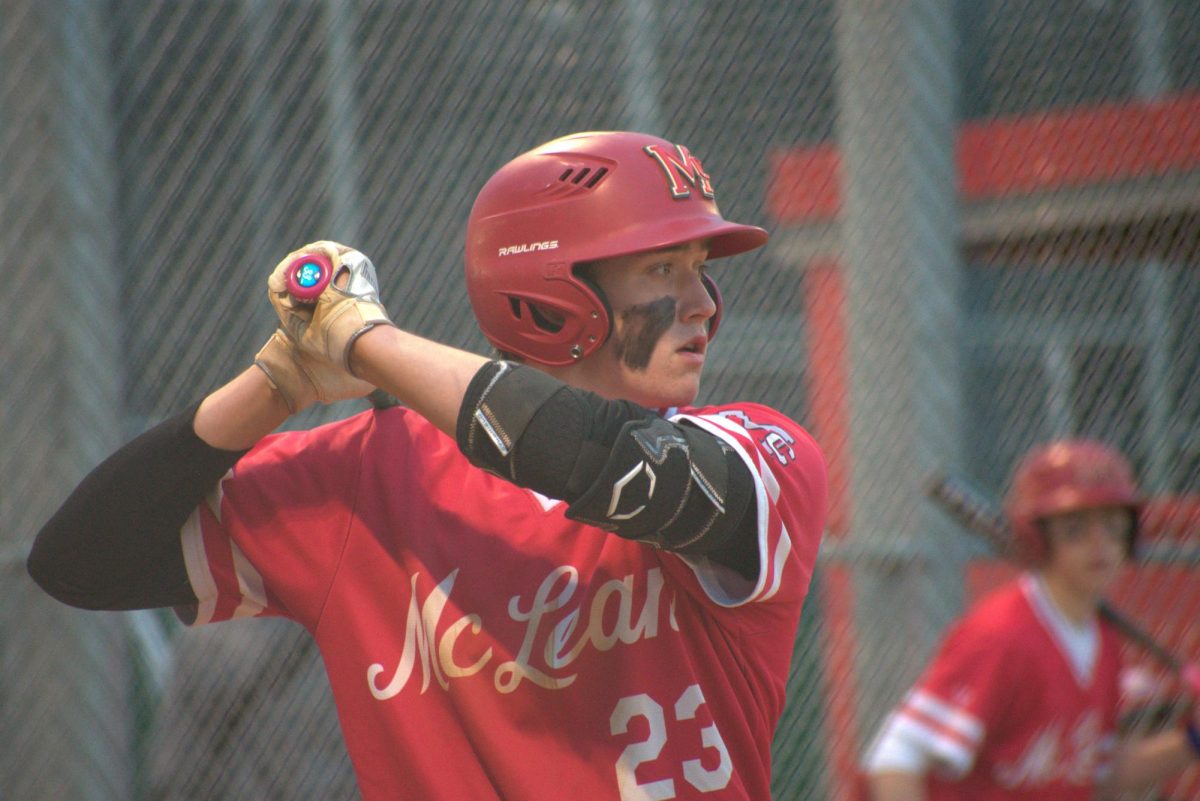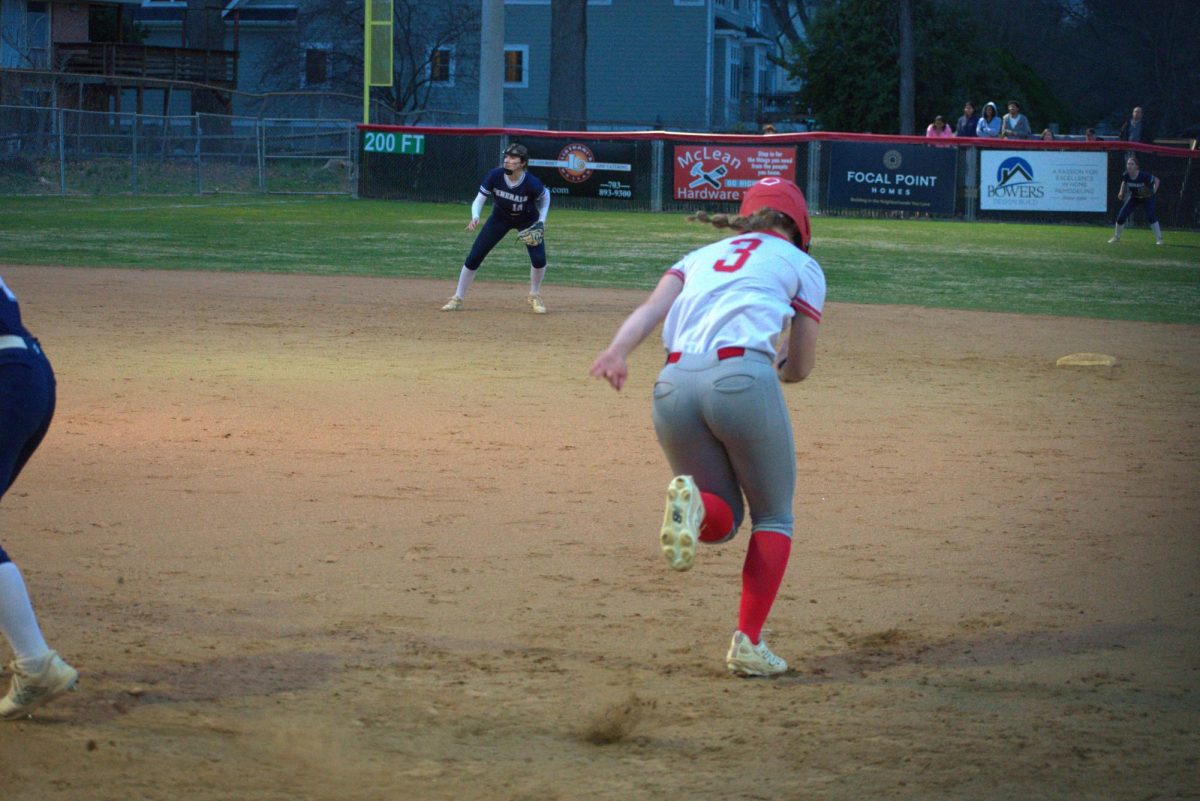On Thursday, Jan. 5, McLean students received information on rules that will be in place for two weeks while further consideration is given to making them permanent. The policy changes covered late arrivals, rules regarding leaving class, limitations on restroom use, reduction in the availability of menstrual hygiene products, restrictions on movement during Highlander Time and termination of five-minute early release for seniors. Principal Ellen Reilly announced the changes following a Jan. 2 meeting with teachers.
“We had a committee meeting [with] about 25 to 30 teachers to discuss the changes,” Reilly said. “Truly, the things that we talked about, they are not anything except expectations of what should be happening. That’s really all they are, it is just not the expectations the students want.”
One of the central motivations for the changes is an increase in late student arrivals.
“I have been here for 12 years and this never was a thing. People used to run to get to class on time and our halls were empty. Now, it’s like Grand Central Station. There are hundreds of kids who are late to school,” Reilly said.
Students who arrive at school more than 10 minutes late will now be required to receive a late pass from the front office.
“If a student arrives to school after 8:20, that student needs to obtain a tardy pass from the attendance office,” an email sent to parents on Jan. 5 stated. “If a student enters a classroom without a pass, the teacher will require the student to go to the main office to obtain a tardy pass.”
To reinforce the expectation that students arrive at school on time, administrators have been working with teachers to ensure attendance is taken during the first ten minutes of class. This is intended to increase the accuracy of attendance records and to promote student safety.
“There’s a call home to parents if you are missing first block, so if a teacher does not [take attendance], and you’re missing, the parents are not notified,” Reilly said. “Years ago, what happened at another school was a kid drove him and his brother to school. His brother went to class, and he didn’t; he went and committed suicide, so that’s why we have to have…that first call. We want to make sure you’re here and that you’re safe.”
Rules restricting students’ ability to leave classes are intended to ensure administrators know where students are, but many students believe the changes are unnecessary.
“With e-hallpass, we track where students are, and it makes them come back to class,” junior Jackie House said. “If students aren’t doing that, that’s an individual student issue of them not following the school’s established rules. There’s not a need for another [widely applied] punishment.”
Students feel the policies limit their ability to use their time at school effectively. In addition to limiting when students can leave class, the changes prevent movement between Highlander Time classes for the next two weeks.
“The rules are incredibly unfair because they punish the students who were following the rules in the first place and not abusing Highlander Time, and aren’t actually going to change things for the students who were breaking the rules,” junior Astoria Stimmler said. “They also are extremely problematic because they interfere with education…people who need to do corrections for tests can’t do them anymore, people who need to…get tutoring can’t do that anymore.”
Given the implementation of e-hallpass in 2022, some students see the new policies as redundant and excessive.
“In theory, the original rules already prevented all these issues. The only issue is that those rules weren’t being enforced or followed,” Stimmler said. “What makes people think that these new rules will be enforced or followed any better than the old ones?”
Restrictions on restroom access were one of the most unpopular parts of the announcement. The original statement released on Thursday stated that students would not be permitted to leave class to use the restroom during the first 20 minutes or last 10 minutes of class, or at any point during Highlander Time. Following discussions on Friday with the Committee on Raising Student Voices, administrators agreed to allow students to use the restroom after the first ten minutes of class and to permit one student at a time to leave class to use the restroom during Highlander Time.
“The assumption is that we can use bathrooms during passing periods, but the problem is most bathrooms don’t actually have fully functional stalls, so you’ll have at most two or three stalls that you can actually use,” Stimmler said. “If everyone is trying to use the bathroom during the seven minute passing period, that’s just not physically feasible.”
Reilly expressed frustration at students’ disapproval of new bathroom policies, given many students have previously requested solutions to bathroom misuse.
“Everybody complains about all the vaping going on in the bathrooms…[and say they] do not want to go to the bathrooms. Except when I tell them they can’t go, then everybody wants to go to the bathroom,” Reilly said. “It will hopefully keep those kids out of the bathrooms, and that students will be free to go to the bathrooms and not have to deal with any of that kind of stuff.”
While students and administrators acknowledge the poor condition of McLean’s restrooms, many students oppose any limitations on bathroom use.
“Bathrooms shouldn’t be used as a privilege. It’s a basic human need to use the bathroom, so taking that away makes zero sense,” sophomore Layla Carter said. “The way that students have reacted in light of the [policies] makes sense. Some people might think that students freaking out over this isn’t reasonable, but it totally is.”
In her Jan. 5 school announcement, Reilly explained menstrual hygiene products will now be provided in only two school bathrooms to reduce abuse of the items. While students were notified of the changes, Reilly’s email to parents the same day did not mention removal of the products from bathrooms.
“I totally understand [students’ concerns regarding removal of hygiene products], but then how do I stop people from trashing them every single day? And then there is none in there anyway because they are down a toilet or on the floor,” Reilly said. “A custodian, three times a day is supposed to come in and fill them all, every single time. So walking down the hall 100 feet longer, I don’t think is that much of a hardship.”
The removal of sanitary products was another change students disagreed with, identifying other causes for the poor condition of school restrooms.
“The real issue with bathrooms isn’t menstrual products being flushed down the toilet, it’s the fact that our toilets are old and broken even if you don’t flush anything wrong down them, [and that] people are vaping in the bathrooms and hanging out in the bathrooms and using them as social places,” Stimmler said. “That’s the issue that needs to be solved. Removing menstrual products is not a clean fix to that.”
It remains unclear if all of the policies will be kept beyond the two week trial period. McLean is currently expected to permanently implement the rules preventing students from leaving in the first and last ten minutes of class. While students and administrators hold different views on the new rules, Reilly explained the changes are intended to help return the school to the standards it once held.
“Years ago, I had an assistant superintendent here for a meeting and he went out in the halls and he goes, ‘Where are your students?’ [to which I responded] ‘They’re in class.’…This is McLean. This is what we are; we’re not there anymore,” Reilly said. “We are a culture of academics. When you walk in this school, you know, we’re here for academics, we need that back again because right now, [students] seem to be in a culture of, ‘I’m the most important thing,’ and ‘What I want is the most important.’ It is not, we are a collective group, and we’re all here to support one another and build the best school community we can.”















